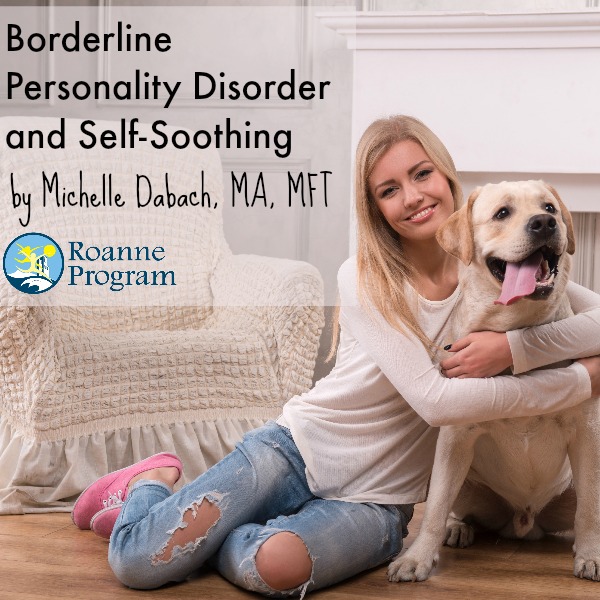Self-Soothing Techniques for Young Adults With BPD

Self-soothing is one of the DBT Distress Tolerance Skills that are taught to folks suffering from Borderline Personality Disorder (BPD). Many with this disorder were never taught how to self-soothe, essentially how to make themselves feel better or comforted when emotionally distressed. Doing something as simple as smelling a flower was never correlated with feeling calm, pleasure, or relaxation, but fortunately, these types of responses can be learned. Those suffering from BPD will often attest to the fact that when distressed, they experience an “all or nothing” reaction – they feel as if they can’t handle the pressure, so they often react in a negative manner. This is often referred to as emotional dysregulation
As my colleagues and I prepare to present at a conference, we decided to make a goody bag of sorts for our visitors – a self-soothe kit.
In this kit, we’re including things that touch the five senses. Before I share with you what we are including, let me explain: We can all agree that we have five senses – touch, sight, smell, taste, and sound. Two or more of our senses may be engaged together at any given point in time. You see something that may have a pleasing (or not so pleasing) smell. You see something that looks soft, so you touch it. You taste some new potato chips and you’re able to see what they look like and hear how they sound as you crunch away. You can even feel the texture in your hands and mouth.
The importance of being able to self-soothe through the senses, to change one’s emotions by exposing one’s self to a sensory stimulus, is that engaging your five senses as a distraction can provide some calm while in a distressing moment. So, in a distressing situation, one can easily conjure up something for any number of one’s senses to help distract from the pain. For instance, you might hear people fighting, so you put on your headphones and listen to music. The goal is to achieve tolerance of the distressing situation and, for many, listening to music allows them to tolerate the distressing factor.
You’re dying to know, right? So, in our goody-bag-self-soothing-give-away-box, we’re including:
- Chocolate – You can taste how good it is and distract yourself by practicing mindfulness while you eat it (see it, touch it, smell it, feel it melt in your mouth, hear what it sounds like if you take a bite of it).
- Cinnamon Tea Bags – These smell heavenly and can convince the sensory receptors in your brain to calm down. Cinnamon leaf oil has been reported as having calming properties and can help alleviate feelings of depression and anxiety.
- Tea Lights – The glow of a candle is often relaxing. The flicker of a flame “can be mesmerizing… it can reduce stress and increase self-awareness.”
- Stress Balls – Stress balls decrease stress and tension by the repeated pattern of grip and release. It also boosts blood circulation!
- Bells – Bells activate our sense of sound. Ringing a bell can help center you and remind you to stop and be present in your moment.
I encourage you to make your own self-soothe kit! Find your favorite candy/food/snack, throw a lavender sachet or tea bag in there, get yourself a pretty candle, include a meditation CD or bells, and stick something to touch in there, like a Koosh ball, a piece of chenille, or something of the sort. And, there you have it! When you’re feeling like you’re about to become emotionally dysregulated because you cannot tolerate a stressor, dig into your toolkit and use your five senses to calm down.
References:
Healing From BPD: Mammalian Brain and Self-Soothing
Healing From BPD: Make Your Own Self-Soothing Kit
At OPI Intensive program for young adults with Borderline Personality Disorder and BPD traits, we intensively integrate DBT as part of your treatment plan. We offer compassionate, clinically sophisticated intensive residential help, including genetic testing to determine the best course for medications, if needed. Rather than a sterile, hospital-like environment, we offer beautiful accommodations in luxury apartments just outside of Los Angeles. At OPI Intensive, we treat the individual, not the diagnosis. Our clinical team is made up of a diverse community of passionate, highly skilled individuals working together with you to help you find your joy and express it. For more information on OPI Intensive residential programs and our measures to help young adults with Borderline Personality Disorder, call us at 866-661-3982 or click HERE to submit an online form. We’ll be in touch promptly.
